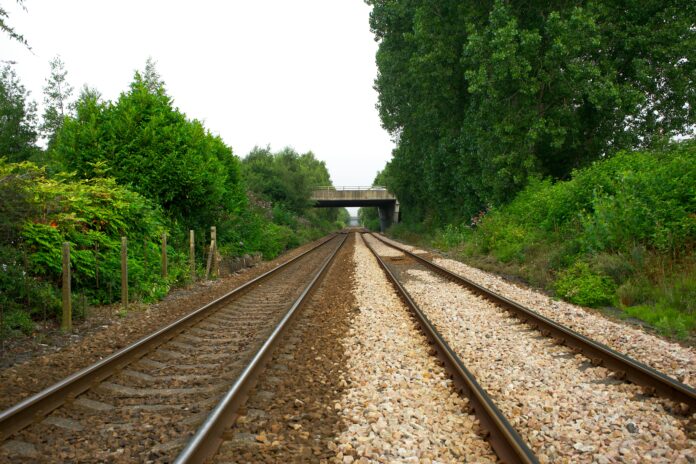Commuters across Britain will soon experience seamless connectivity and uninterrupted mobile service on the nation’s busiest rail routes, as the Transport Secretary today finalised a landmark deal designed to eliminate notorious mobile blackspots.
This breakthrough agreement promises to transform daily journeys for millions of passengers who currently endure the frustration of dropped calls and interrupted streaming on key routes connecting London, Manchester, Newcastle, and Cardiff.
Dubbed Project Reach, the deal was signed today (26 June 2025) between Network Rail and telecoms companies Neos Networks and Freshwave. It signals the end of passengers having to pause important work calls or cut short conversations with family members when trains enter areas previously devoid of mobile signal.
The project’s innovative commercial model integrates public and private sector investment and infrastructure. This collaborative approach is expected to save taxpayers approximately £300 million while simultaneously establishing a high-performing digital connectivity backbone for businesses, thereby supporting the UK’s broader digital ambitions.
Initially, Project Reach will see Neos Networks deploy 1,000 kilometres of ultra-fast fibre optic cable along the East Coast Main Line, parts of the West Coast Main Line, and the Great Western Main Line. There is an ambitious plan to expand this coverage to over 5,000 kilometres in the near future. In parallel, Freshwave will tackle signal blackspots in 57 tunnels, covering almost 50 kilometres, including the 4-kilometre-long Chipping Sodbury tunnel near Bristol.
As part of the comprehensive deal, mobile network operators will also invest in new 4G/5G infrastructure at 12 of the largest Network Rail stations across the country. These include major hubs such as Birmingham New Street, Bristol Temple Meads, Edinburgh Waverley, Euston, Glasgow Central, King’s Cross, Leeds, Liverpool Lime Street, Liverpool Street, Manchester Piccadilly, Paddington, and Waterloo.
Heidi Alexander, Secretary of State for Transport, hailed the agreement: “This is a game changer for passengers up and down the country and will revolutionise journeys from Paddington to Penzance and Edinburgh to Euston. By boosting connectivity and tackling signal blackspots, we are also ensuring a more reliable and efficient service. This means better journeys for passengers while supporting our broader Plan for Change goals of economic growth and digital innovation.”
This multi-year project anticipates the first installations of mobile infrastructure to begin in 2026, with a full rollout expected by 2028.
Beyond passenger benefits, the enhanced network will also enable improved monitoring of railway assets and facilitate new technologies that rely on robust connectivity. This will pave the way for more reliable train services and heightened safety for railway workers.
Jeremy Westlake, Network Rail’s Chief Financial Officer, expressed his satisfaction: “I’m delighted that we have now signed this innovative deal with our partners Neos Networks and Freshwave. This investment model will deliver the necessary upgrades to our telecoms infrastructure faster whilst offering significant value-for-money for the taxpayer and stimulating wider economic benefits across the country. As we move towards becoming a unified railway with the formation of Great British Railways, the enhanced telecoms infrastructure will play a key role in our ambition to provide a data-driven railway of the future, delivering better connectivity and a better, more reliable train service for our passengers.”
Lee Myall, CEO of Neos Networks, stated: “Project Reach will support the upgrade of the UK’s connectivity infrastructure, creating new data superhighways that will drive the UK’s digital ambitions forward.”
Jacqueline Starr, Executive Chair and Chief Executive Officer of Rail Delivery Group, added: “We know how much customers value good mobile connections when they travel and we’re delighted that a digitally connected railway will soon become a reality. Travelling by rail drives economic growth by connecting businesses and communities, improving productivity, and supporting the transition to net zero. This vital upgrade to telecoms across the network will give everyone the opportunity to stay connected, wherever they’re headed.”
This partnership represents a major stride towards improved performance and better services for passengers, aligning with the vision for Great British Railways. The Transport Secretary continues to deliver on the government’s Plan for Change, aiming for a more connected, efficient, and passenger-focused railway fit for the future. The initiative also builds on the £41 million confirmed in the government’s National Infrastructure Strategy to introduce low-earth-orbit satellite connectivity on all mainline trains, significantly enhancing both the availability and internet data connection speeds for Wi-Fi-connected passengers.





